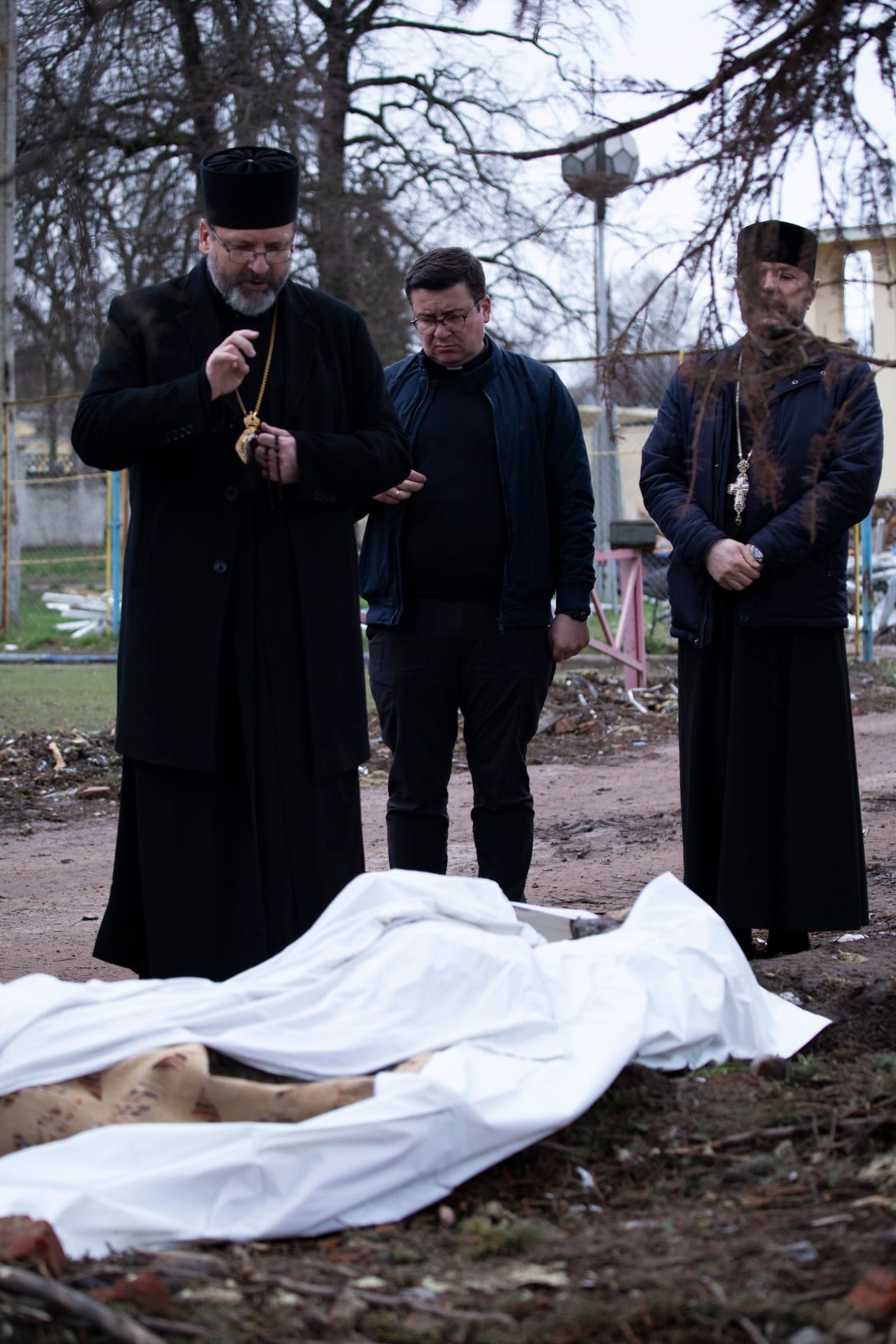
“We are immersed in an ocean of sorrow, the sight of these tragedies makes our blood run cold. To think that in Europe, in the third millennium, someone has the impunity to destroy human life every day is truly unthinkable. It is a veritable sacrilege.” His Beatitude Sviatoslav Shevchuk, Father and Head of the Ukrainian Greek Catholic Church (UGCC), recalls the tragedy of Sumy as he comments on the past 1,000 days of war. An explosion hit a courtyard surrounded by residential buildings, damaging 13 buildings and dozens of apartments. According to the authorities, 84 people were wounded, including 11 children, and 11 people were killed, including a 9-year-old boy and a 14-year-old girl.
“This deep sadness raises many questions: how is it possible that in Europe today a neo-colonial war is being waged, which does not consider human beings worthy of respect? These are the questions that unfortunately remain unanswered”.

From Trump to the German Chancellor to the G7. Everyone is trying to end the war by diplomatic means. Is it capitulation or are they offering a just peace?
On behalf of the suffering people who are dying every day I would like to thank the world leaders and all those who are working to end this war with the means and possibilities at their disposal. We are truly grateful. But there is some mistrust, perhaps even the shadow of fear. There is a fear that we will pay the highest price in these negotiations. We have seen how the tragedy of the war in Ukraine has become a subject of political contention in the United States. The war in Ukraine is at the centre of diplomatic, political and indeed economic negotiations. We appeal to everyone to have the courage to listen to the voice of the Ukrainian people, lest they think that peace can be achieved without us. We have been on the agenda in the past, but it was in our absence. Ukraine’s voice must be heard and taken into account.
The people of Ukraine must be at the centre of the talks. Only in this way can a real dialogue be initiated, not a monologue by those in power. This is the only way to pave the way for a just peace.
What is meant by a “just peace”?
In the first place, a just peace must uphold the right to life and the dignity of the human person. When people talk about peace, they often talk about territories, about what can be relinquished and what can be demanded. But no one talks about the human persons who are the inhabitants of these territories. Two, we must never mistake real peace for ceasefire. A just peace is a lasting peace. If today, for instance, the diplomatic and political foundations were laid for a ceasefire agreement in accordance with the Minsk 3 agreement, which provides for a freezing of the conflict, without addressing the causes of this conflict, that ceasefire, mistaken for a just peace, would not only last for a very short time, but it would also give the aggressor the opportunity to amass greater military forces and attack us again. This is what has happened since 2014. Third, a just peace must pave the way for reconciliation. Because justice and truth must always be embraced, if the hearts are not pacified, if the intentions of the wicked remain unchanged, there is no chance for peace to emerge.
Unfortunately, when people talk about peace, all we hear is about interests. There is no talk of the defence of rights. And that is very dangerous because if rights are replaced by interests, it will lead us to the situation in Europe before the Second World War.
Ukraine has been fighting for 1,000 days and has grown weary, very weary indeed. Is there any room for negotiation with Russia? And is their hope in a brighter future?
This is a big question and I have no pretence of offering a short answer. But earlier today, referring to the last 1000 days, I spoke of 1000 days of hope. Feelings come and go, but hope is not a feeling. When you see the doctors who never tire of stitching up wounds every day, knowing that tomorrow the war will cause more wounds, then hope has their face. Hope has the face of an ever-present light when you see the engineers and technicians working to restore the energy infrastructure, repairing and reassembling broken cables, knowing that tomorrow yet another missile may destroy their efforts. Hope is the face of our young people. In the midst of war, they are able to love, marry and give birth. It’s incredible, because they know what war is all about. They know that in their generation there have been more funerals than there have been marriages. Yet they never tire of bearing life, of dreaming of a happy world and a bright future.
When you see these people, you understand that hope is not an illusion, it is not a feeling, it is an authentically Christian virtue. What is the source of this hope? The source is the Risen Christ. In this realm of death, He makes us see that the hope of life is always greater.











